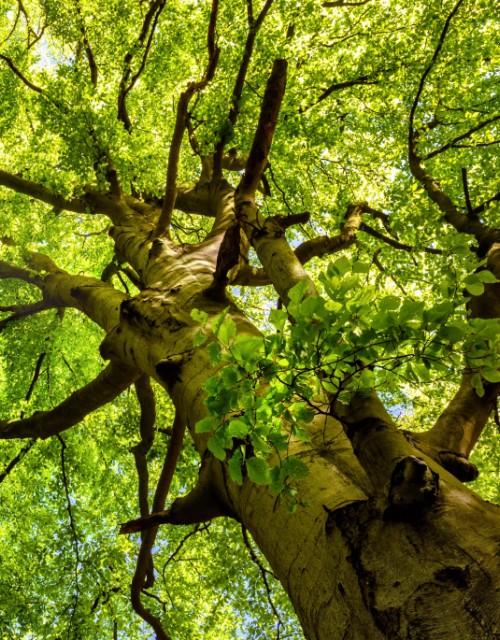Benefits of trees
Urban forests consist of the native forest remnants and the planted, forested landscapes in our cities. The urban forest is a valuable resource that provides economic, environmental and social benefits. Quality of life in cities is enhanced when we have a canopy of trees shading our homes and streets, mitigating stormwater effects, providing energy savings and improving property values. Research by the USDA Forest Service indicates that for every $1 spent on urban trees, $2.70 in benefits is returned. Trees in our neighbourhood contribute to the quality of our lives and make our communities more livable.
As forests in North America become more fragmented through urbanization and development, we lose a significant amount of the ecosystem services that forests provide.
Cleaner air
Trees clean our air. In one year, one acre of trees can remove 2.6 tons of carbon dioxide or the equivalent of what one car driving up to 8,700 miles produces. In one year, that same acre of trees produced the amount of oxygen consumed by 18 people annually. One tree alone produces nearly 260 pounds of oxygen per year.
Shade and reduced energy costs
Trees lower energy costs for homes and other buildings. During warm summers, shade from tree canopies reduces interior temperatures, making air conditioning less necessary.
Increased value and decreased costs for property
Properties with more mature trees and greater tree canopy cover both accrue value and sell faster than similar properties without trees. Trees also reduce noise pollution, an important consideration in urban environments. Trees prevent soil erosion, which reduces the need for expensive soil amendments or replacement.
Higher quality of life
Trees generate good public relations as well as a positive response from neighbours. Protecting trees provides a healthier forest ecosystem and environment, resulting in a safer, more vital community. Trees fight global warming by removing carbon dioxide from the air.
Source : The Pacific Northwest Chapter of the International Society of Arboriculture (ISA Pacific Northwest chapter)

